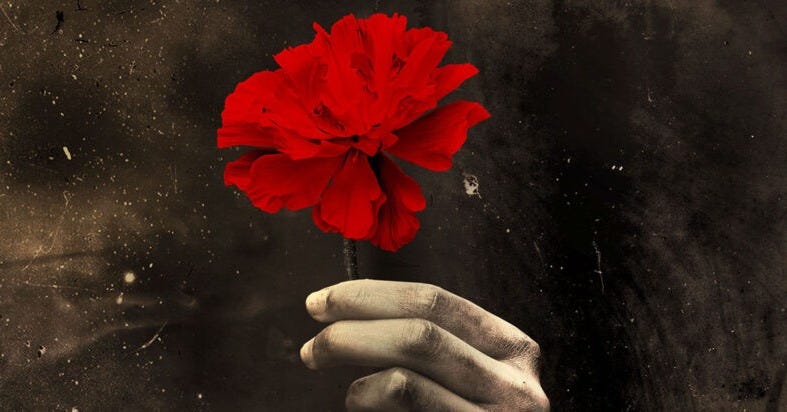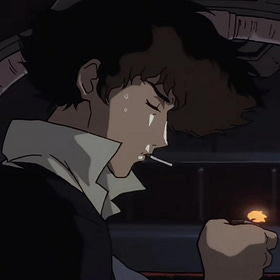Why Let Stories Rip Our Souls Apart?
The foundation that keeps us storytellers going when we're tired and burnt out
Why Do We Write Stories?
Only a special kind of person can look at all the darkness in the world, feel the pain in their bones, and then turn that suffering into something beautiful with their words.
This magical transformation is precisely what we do every day as storytellers.
In this way, we have access to a divine power: creating hope and light out of darkness and shadows.
Not only are we redeeming our own tragedies through the power of storytelling, but we redeem the tragedies of others by helping them turn their brokenheartedness into a meaningful story.
A storyteller’s great duty is to understand the pain in the world, then give words to what others have experienced to break them free; leading them out of darkness and toward light.
The Power to Heal Others
When we share our stories, we are baring our hearts and giving others the chance to say, “Me too.” Such a declaration helps them feel less alone in the darkness. We show them that evil can be overcome.
Some might say that hope in the face of the depths of brokenness present in our world is naïve. Perhaps. But I can tell you for certain from my own experience that it takes much more bravery to hope for things to become better and work toward making them so than giving up and accepting the darkness.
But carrying the weight of hope is heavy.
The Weight of Hope
Selflessly carrying stories of hope and freedom to others takes a lot out of us. The work we do is very emotional. In order to understand someone’s story to tell it well, we need to have the empathy to put ourselves in their shoes and imagine what they must be feeling and experiencing.
This first step alone can lead many creative storytellers to burn out because not only do we experience our own lives very deeply, but we have to experience the lives of countless others deeply in order to craft our stories.
Why do we do what we do when it rips our hearts out and feels so heavy? Statistically, the majority of storytellers do not make money from writing, even if they do happen to craft the next New York Times Bestseller. We write and live and create our stories in our exhaustion, after we have already worked 3 jobs to try to survive. Oftentimes, we pour our souls, finances, and time into our craft to receive no acknowledgement of our work. No payment. No recognition that we are doing anything worthwhile. So what makes us go on?
What is the foundation of purpose that drives us to become storytellers? What keeps us going to continue writing, creating, living and sharing hopeful stories, when the hopelessness cuts so deep?
What It Costs You to Carry the Stories of Others Well
In the work that we do as story coaches, editors, and creators, we constantly evaluate ourselves to make sure that we are carrying others’ stories well. It is a privilege beyond any other to offer others the power of healing their own hearts. We must make sure we are wielding this power consciously and responsibly.
A story we talk about often within our team to help us remember the great purpose we have as storytellers is Hadestown, the musical. For those unfamiliar, this theatre play retells the tragic story of Orpheus, a poet who sang a song that had the power
“To fix what’s wrong / Take what’s broken, make it whole / A song so beautiful / It brings the world back into tune.”
Hermes, the Olympian god and narrator of the play, says of him:
“Orpheus was a poor boy / You might say he was naive / But this poor boy raised up his voice with his heart out on his sleeve.”
To save his imprisoned lover, Eurydice, Orpheus must take a long, dark, and dangerous walk to Hadestown, the underworld where people are enslaved by the cruel and lonely king, Hades. Orpheus is warned that the walk,
“Ain’t for the sensitive of soul,”
but he strikes out in selfless love anyway.
Relistening to the musical album recently (as I do often), I was struck by the thought that this walk into the darkness is even more painful for someone who wears their heart on their sleeve and feels everything more deeply than everyone else. As creatives, we tend to have very soft hearts. Some might call us overly-sensitive, dramatic, or weak. In truth, this empathy is the cost of our duty to speak healing into the world. In the process of bringing his full heart to the darkest and most hopeless of places, Orpheus’ song ends up being the anthem of the enslaved people that restores their hope of freedom and value as humans which Hadestown stole from them.
Ultimately, Orpheus loses the one he loves the most because of the burdens his soul carries, and the enslaved remain imprisoned. But the idea of their own inner strength, reborn, stays with them forever. Despite the sad tale of Orpheus’ tragedy, his story told in this musical never ends. The beginning song starts over again at the ending number to show us that Orpheus’ music continues on, to be sung again and again by those who need hope. Because there is meaning in his story that impacts people beyond his own experience.
The Purpose of a Storyteller
Lending our words and empathy to others by telling their stories is a labor of love: a sacred burden unlike any other. But I believe that when you wield the power of creation to redeem brokenness into something beautiful, you are the closest to divine purpose you can get in this life.
Hopefully we can all protect our souls from the weight breaking us like it did Orpheus. Yet, this foundation of selflessness and purpose is what keeps me going against all odds. Because I know I have the power to tell the stories that will bring freedom and healing to others, with a ripple effect that I may never see in my lifetime.
You have this power, too.
The great honor of telling meaningful stories can be a heavy burden, but knowing we have such an important purpose should encourage us to continue writing and living our stories; continue speaking truth and kindness boldly into other peoples’ stories. Keep carrying your torch as part of the grand army of goodness. Do not give up. Do not doubt your power. Maybe I will only see the sadness and brokenness in my life. But stories written down publicly live beyond us. The ink endures, and it only has to touch one heart for the ripple effect to start.
Someday, when we least expect so, we will change the narrative of the world to be a story more aligned with light.
Are you currently experiencing burnout on your writing journey? Need guidance or encouragement on how to keep going? Join the OBA Nation community and be uplifted by other storytellers who are telling world-changing stories! Leave a ❤️, a comment, or a message introducing yourself and let’s get you plugged in.
Not sure if you have a story that can change the world? ‘TELL IT ANYWAY’ is an 8-week online group storytelling workshop that teaches you how to excavate your story and use it to make a positive impact with your work. Because if you want to build something that makes a real difference — a brand, a book, a business, a movement — your honest, human story is the key.
We only have 8 seats available per cohort. Join our waitlist for free to learn how to Tell It Anyway.
More related storytelling lessons:
Don't Quit on Your Writing Project
5 steps you can take to ACTUALLY help you through writer's block.







To bring hope and infuse the reader with a sense that they can do it too.
beautiful piece <3